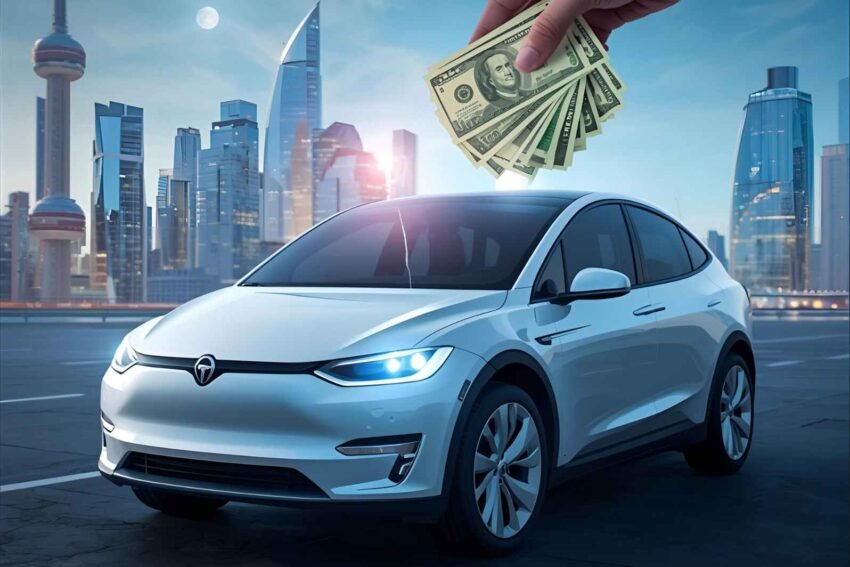Electric cars are now becoming mainstream. They are increasingly a clever decision for many. With the support of government and lucrative offers and increasing in fuel prices and jump for a cleaner energy have made EVs popular in India as well as the world. But no matter what people say about EVs, there’s one area that always seems to come up – tax credits and incentives.
If you are in the market for an EV, these incentives matter. They can lower the cost of your car, and thus make your investment better. Here we are going to break down what EV tax credits are and how they work, and then point out some things you should consider before making a decision.
What Are EV Tax Credits?
EV tax credits are payments made by governments to people who buy electric vehicles. The top aim is to entice more people out of petrol or diesel cars and into electric vehicles.
In India, the government provides subsidies and tax benefits as part of schemes such as FAME II (Faster Adoption and Manufacturing of Hybrid and Electric Vehicles). Other countries, like the U.S., offer EV buyers federal tax credits that reduce income tax bills.
So then, whether you live in India or overseas, EV tax credits decrease your effective cost of owning an electric vehicle.
Why Governments Provide Tax Credits for Electric Vehicles
The main reasons are:
- Reduce emissions: EVs produce less in the way of pollution than petrol and diesel cars do.
- Encourage clean energy: Once an electric vehicle is on the road, it can charge with solar- and wind-generated power.
- “Support new technology: Tax credits enable the consumer to afford electric vehicles and accelerate their adoption.
- Less expensive oil import bills: Countries such as India, for instance, have huge outgoings towards importing crude oil. EVs reduce this burden.
Types of EV Benefits in India
You don’t get a “tax credit” as in the US, but you do have tax breaks and deductions in India. These include:
1. Purchase Subsidy
Under the FAME II scheme, purchasers of electric two-wheelers, three-wheelers and cars are given a subsidy directly at purchase.
2. GST Benefit
Electric vehicles are taxed at 5% GST while luxury car taxes on petrol and diesel cars run as high as 28%.
3. Income Tax Deduction
Buyers can claim a deduction of up to ₹1.5 lakh on the interest paid for the loan taken to purchase an EV under Section 80EEB of the Income Tax Act, it said.
4. State-Level Incentives
Several states including Delhi, Maharashtra and Gujarat provide additional subsidies, road tax waiver as well as registration fee cuts.
Things to Keep in Mind Before Buying
1. Eligibility
Only some EVs are eligible for government incentives. See if the car or scooter you are eyeing comes under the approved list of FAME II or state policies.
2. Battery Capacity
Subsidies often hinge on the size and capabilities of the battery. Better range vehicles generally see higher support.
3. Loan Requirement
Only if you contract a loan will you be able to take advantage of the ₹1.5 lakh tax deduction under Section 80EEB when buying an electric vehicle. This would not be available to cash buyers.
4. Changing Policies
Incentives may not last forever. Once EVs reach a critical mass, government subsidies can fall away. So if you’re considering a purchase, it may be a good idea to act sooner rather than later.
5. Long-Term Savings
Even with no tax credits, EVs are still cheaper to fuel and maintain. But the savings are even larger with incentives.
EV Tax Credits in the Rest of the World
But to understand how this looks in the global context, we must also see the US and Europe.
- United States: Purchasers are eligible for a federal tax credit of up to $7,500 depending on the size of the car’s battery and where it is made. But not all models are eligible, and the credit is phased out once a manufacturer sells a certain number of cars.
- Europe: Most countries offer cash rebates, free charging or tax breaks for buyers of electric vehicles. Norway has among the world’s most advanced EV policies, with no import duty or road tax for buyers of electric vehicles, for example.
This is one of the indications that incentives are a major contributor to EV adoption across the globe.
EV Tax Credits in Future India
The Indian government has set the goal of having 30% of all vehicles electric by 2030. This will be done by keeping tax privileges and subsidies for some years. But these could fall as the market expands.
Industry advocates contend that if electric vehicles are cost-competitive to produce, perhaps tax credits will no longer be necessary. By that time, organic demand and robust charging infrastructure will sustain sales.
FAQs:
Q1. What is the FAME II scheme?
FAME II is an initiative of the government which offers subsidies on electric vehicles to bolster their sales.
Q2. Can I Get GST Benefit And Income Tax Deduction Both?
“We are already paying reduced GST, then helps if you buy your EV on loan because the income tax deduction is available under Section 80EEB,” he says.
Q3. Can I get a tax credit if I buy used?
In India, the only vehicles that qualify for subsidies are new EVs. Used EVs do not qualify.
Q4. Are all electric cars eligible for benefits?
No. Subsidies are applicable only on FAME II-approved or state-level policy approved models.
Q5. Should I buy an EV or wait?
By purchasing now, consumers can capitalize on the current subsidies. Policies may change, benefits could be cut if you wait.
